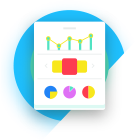



What does your Child Learn
Educational Programmes



Assessment
plays an important part in helping parents, carers and practitioners to recognise children’s progress
Ongoing assessment (also known as formative assessment) is an integral part of the learning and development process. It involves practitioners knowing children’s level of achievement and interests, and then shaping teaching and learning experiences for each child reflecting that knowledge. In their interactions with children, practitioners should respond to their own day-to-day observations about children’s progress and observations that parents and carers share.
Key Features of the EYFS






